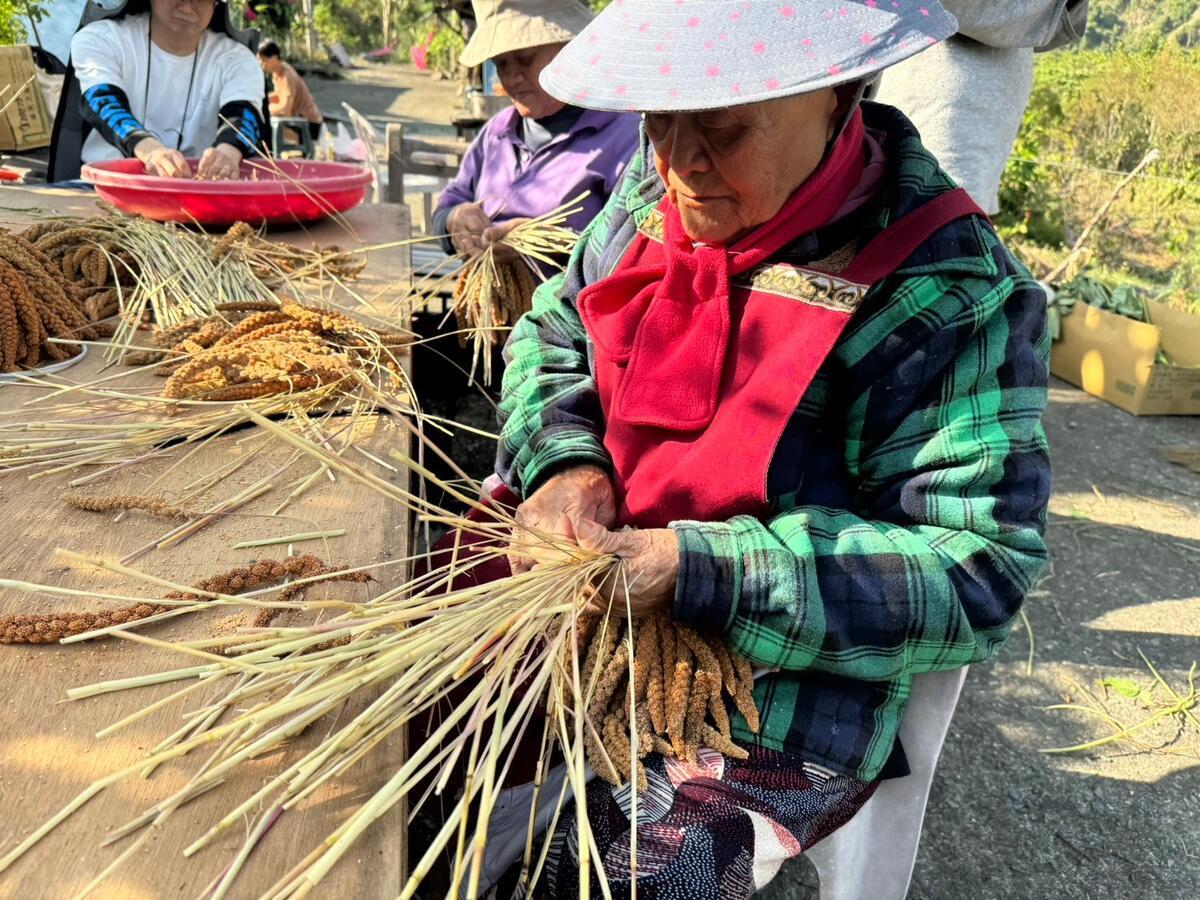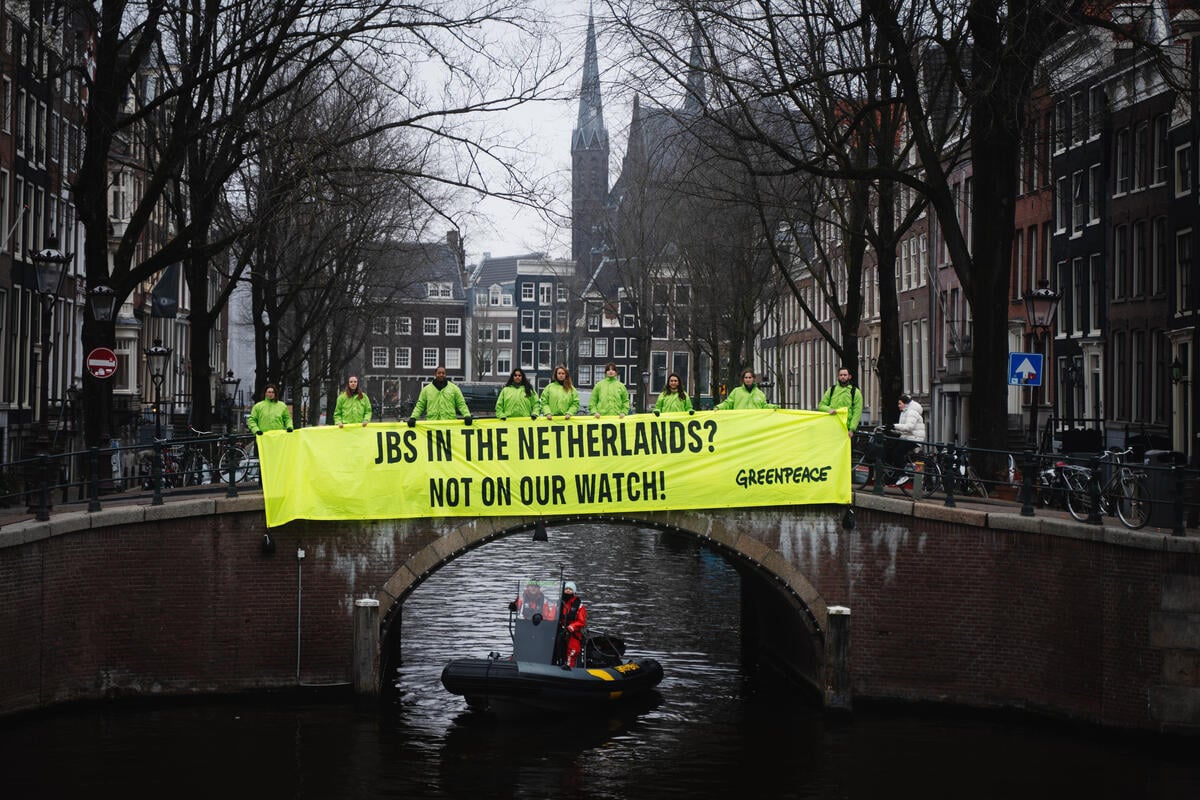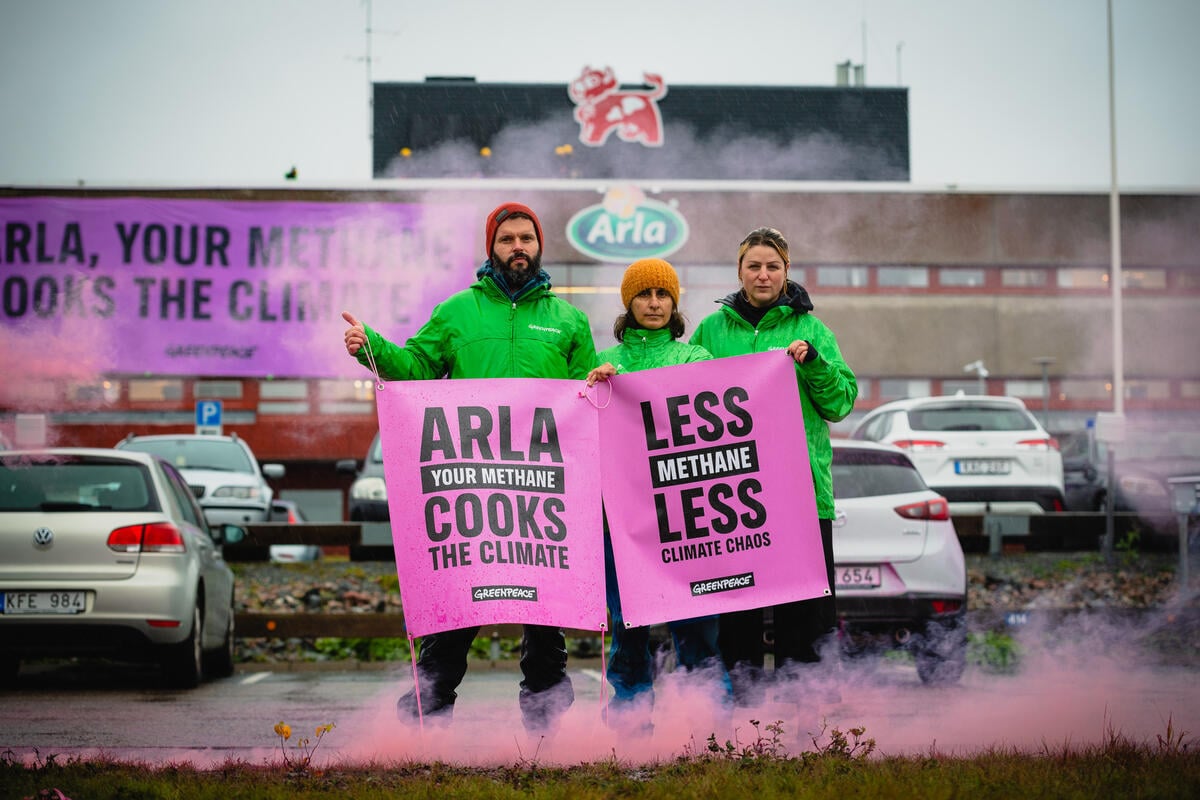Quezon City, the Philippines — Greenpeace Philippines today called on fossil fuel companies to pay reparations for climate impacts as the Philippines’ northern provinces brace for storm-force conditions brought on by Typhoon Mawar.
Typhoon Mawar (local name, Betty) is the world’s strongest typhoon so far this year, rapidly intensifying twice to become a super typhoon (STY), almost matching the strength of STY Haiyan (local name, Yolanda). Although the super typhoon was downgraded into a typhoon early Sunday, it is still expected to bring strong winds and heavy rainfall that may cause floods and landslides until Tuesday.
An average of 20 tropical cyclones affect the Philippines yearly, and with climate change warming ocean temperatures, typhoons are getting more frequent and more intense. In the past six years alone, the country experienced 14 super typhoons.[1] Philippine officials estimate that climate impacts have caused USD 10 billion in losses and damages from 2010 to 2020.[2] Recent Department of Finance estimates show the country may incur as much as PHP 1.5 trillion yearly in losses from natural disasters in the next five decades.[3]
“The Philippines is in a constant state of climate emergency,” said Greenpeace Philippines campaigner Jefferson Chua. “Super Typhoons are the Philippines’ new normal, even as we are already experiencing longer-term, slow onset impacts such as drought, sea level rise, and diminishing resources.”
“Meanwhile, fossil fuel companies responsible for most of the carbon emissions that have largely contributed to the climate crisis, are still looking to expand their operations, further exacerbating the effects of climate change, even as they rake in huge profits from our people’s suffering.”
Last May 19, a new study published in the journal One Earth[4] showed how 21 largest oil, gas and coal companies are “responsible for $5,444 billion in expected lost GDP over 2025-2050, or $209 billion per year,” based on their share of emissions over 1988-2022. The study says that the costs of climate impacts are primarily borne by governments and their taxpayers, by insurance companies, and by uncompensated victims of climate change—even while companies that engage in the exploration, production, refining, and distribution of oil, gas, and coal “bear substantial responsibility for the cost of redressing climate harm.” Progress in attribution science shows that these companies have played a major role by continuing operations while wilfully ignoring climate harm.
“Typhoon Mawar, like all other super typhoons before it, is a stark warning and a reminder that scientists predict that things will get a lot worse,” said Chua. “All over the world, communities who are the least responsible and least able to cope are the ones who bear the brunt of the worsening climate crisis. They are burdened not only with preparing for escalating impacts, but also dealing with the anxiety of an uncertain future. But even while communities are doing their utmost so that they can ensure their own future, they are rendered disenfranchised because of the willful inaction of those that have the most responsibility to change.”
“The Philippine government must demand reparations for losses and damages from fossil fuel companies. At the same time governments around the world must ensure that these companies undertake a fast and fair transition away from fossil fuels, and pay up for their role in climate disasters. The world shouldn’t let these climate crimes continue; culprits must be held to account and must pay reparations,” Chua said.
ENDS
Notes:
[1] Greenpeace: PH a supertyphoon hotspot, experienced 7.5 times more STYs than previously thought
[2] Climate-related hazards led to US$10-B losses for low-carbon emission PHL over 10-year period
[3] Losses from disasters seen ballooning to P1.5 trillion yearly
[4] Time to pay the piper: Fossil fuel companies’ reparations for climate damages
Contact:
Katrina Eusebio-Santillan, Digital Campaigner: Greenpeace Philippines, [email protected], +639992296451



